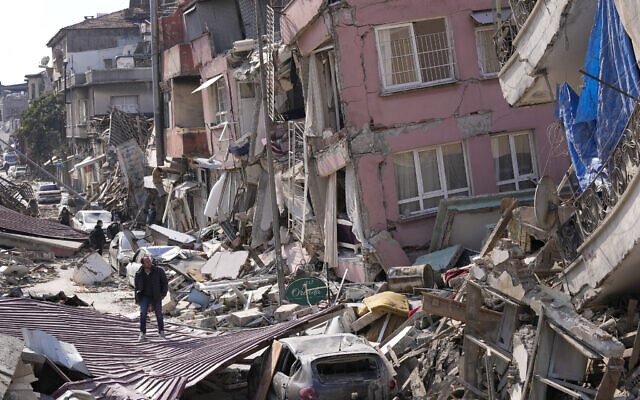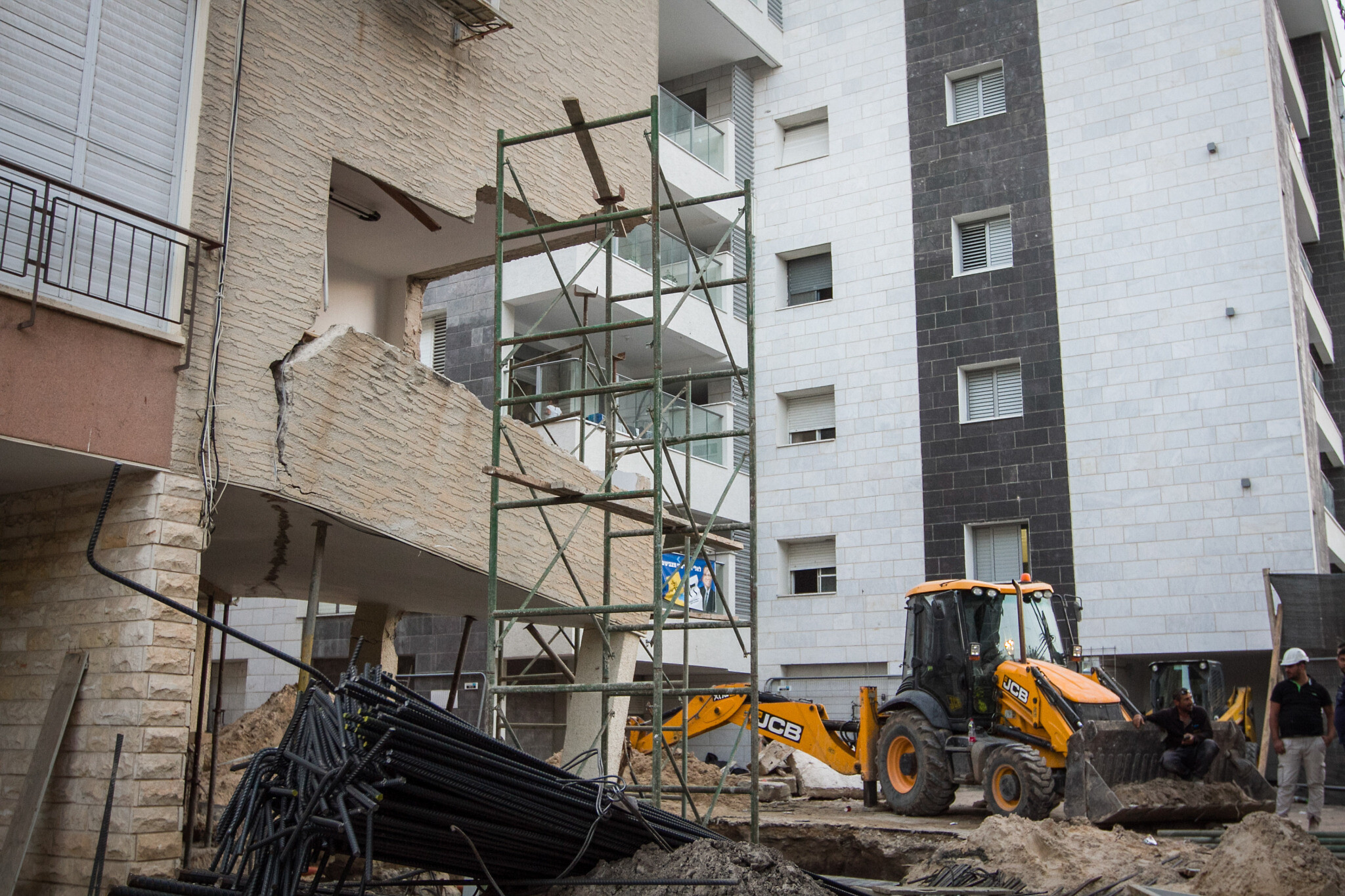Knesset committee fails to update earthquake construction framework
Hundreds of thousands of homes and public buildings are at risk, but no agreement reached on making them earthquake safe

A Knesset committee meeting Monday on earthquake preparedness broke up without agreement on a new framework to strengthen hundreds of thousands of buildings believed to be vulnerable to future tremors.
Governmental bodies with the responsibility for quake planning, together with representatives from other groups involved in earthquake readiness, concluded that there was no better plan available at the moment than the current, unsatisfactory TAMA 38 provisions.
The TAMA 38 regulations, which first came into effect in 2005, are designed to incentivize the private sector to upgrade the foundations of older buildings, in return for additional building rights and tax breaks. The program has become very popular in Tel Aviv and in Jerusalem, where house prices are high. But it has done little for cities such as Beit She’an and Tiberias, located along the geological fault line to which Israel is most exposed. House prices in these areas are not high enough for building contractors to feel that TAMA 38 projects will deliver the profits they are looking for.
TAMA 38 was set to have ended last year. The building program was extended because of the number of projects in the pipeline and the lack of an alternative framework, with termination postponed until the fall of this year.
Despite the extensions, the National Planning and Building Council is among those to have condemned TAMA 38 for its failure to deliver on its key purpose: to increase the numbers of homes that are reinforced to withstand earthquakes in the eastern part of the Israel, which is deemed the area at greatest risk, since it lies on the Syrian-African Rift.
Amit Gottlieb, chairman of the Urban Renewal Committee in the Israel Builders’ Association (ACB), told the earthquake readiness committee: “TAMA 38 must not be stopped in October. There is no viable alternative.” The ACB also put forward proposals for changes to the tax regime relating to building upgrades, in order to make projects in areas of greatest need more attractive to developers.

Former interior minister Ayelet Shaked, during her time at the ministry, set out a new framework (amendment 136), which was agreed upon almost a year ago. It tried to replace TAMA 38 with a partnership between municipalities and developers, to encourage earthquake-proofing in areas of need in which housing prices were lower. But according to the ACB, not a single project has yet been submitted for approval under the scheme, and there is skepticism that it can deliver.
The committee chairman, former mayor of Bnei Brak Yaakov Asher, told the gathering that he does not believe Shaked’s plan offers a workable framework. In its place, he supports a further extension of TAMA 38 beyond the current end date of October 2023.
A representative from the Tax Authority indicated that it is exploring a new tax credit system that would seek to tie tax breaks on TAMA 38 development in central Israel to projects to strengthen buildings in the periphery of the country.
Overall responsibility for earthquake readiness sits with the Interior Ministry. But the newly installed acting minister, Michael Malkieli of the Shas party, who was appointed to replace Aryeh Deri, was reported by Channel 12 news to have failed even to visit ministry offices in the first weeks of taking charge.
Pictures of the collapse of entire neighborhoods, including new buildings, in Turkey and Syria as a result of last week’s earthquake have focused attention on Israel’s exposure to a future quake. Compulsory building standards in effect since 1980 are supposed to ensure that anything built since then is earthquake resistant. However, thousands of schools, and somewhere between 600,000 and 1 million homes, pre-date the changes to building regulations and have not been upgraded.









